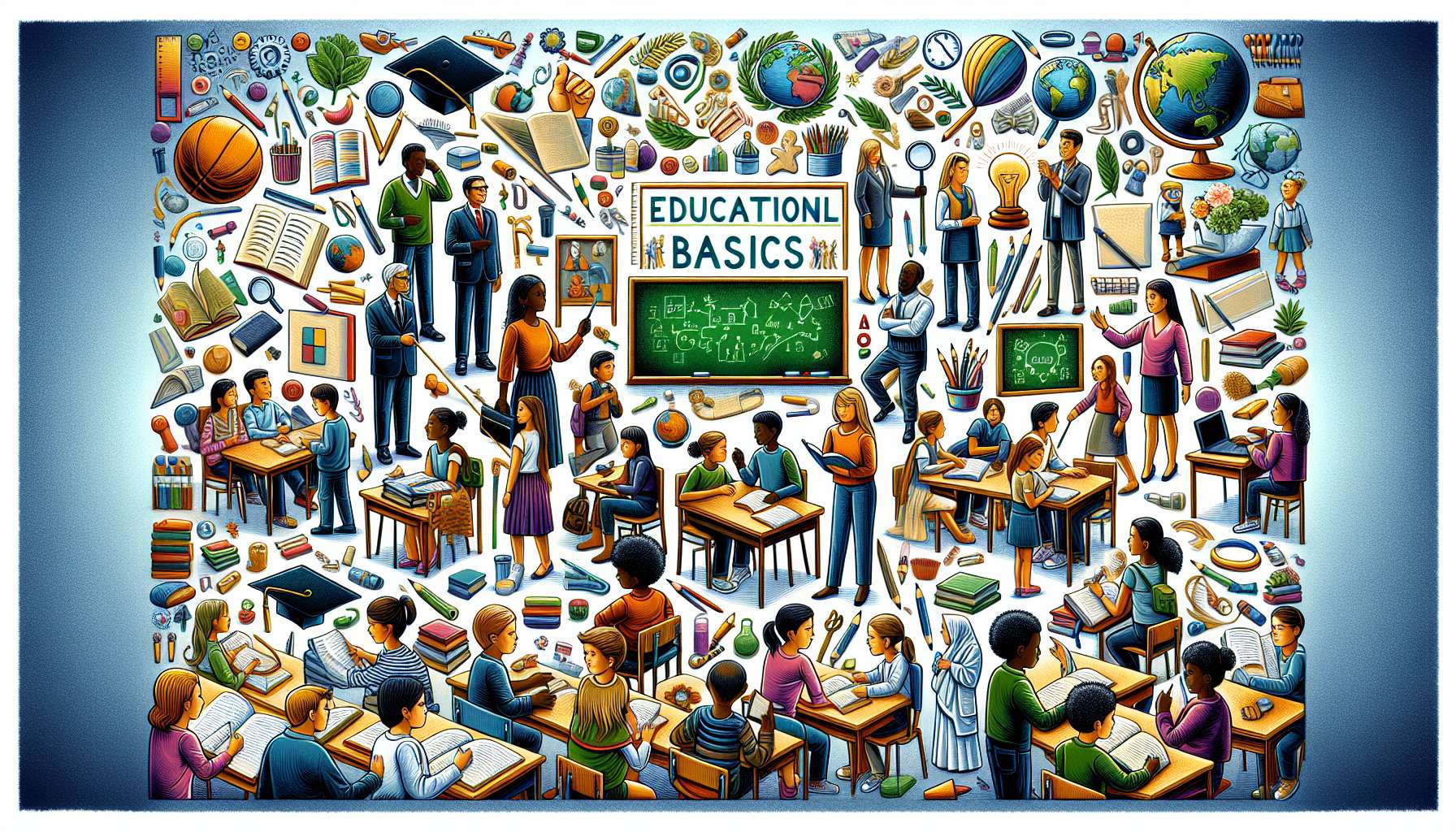Educational Basics: A Comprehensive Guide
Education is the cornerstone of society, shaping individuals’ minds, molding future generations, and driving progress and innovation. Understanding the foundational principles of education is crucial for both educators and learners alike. In this comprehensive guide, we will delve into the essential aspects of ‘Educational Basics’, exploring its historical significance, current applications, and future trends. Join us on a journey to uncover the fundamental principles that underpin the world of education.
The Evolution of Education
Education has undergone significant transformations throughout history, adapting to societal needs and technological advancements. From traditional forms of learning in ancient civilizations to modern educational systems, the evolution of education reflects the changing dynamics of human society. The establishment of formal schools, the development of standardized curricula, and the rise of digital learning platforms have revolutionized the way knowledge is imparted and acquired.
One of the key milestones in the evolution of education was the advent of the printing press in the 15th century, which made books more accessible and facilitated the spread of knowledge. The Industrial Revolution further transformed education by emphasizing the need for a skilled workforce, leading to the establishment of vocational schools and technical education programs.

The Role of Educators in Shaping Minds
Educators play a pivotal role in shaping the minds of students, fostering critical thinking, creativity, and lifelong learning skills. The art of teaching goes beyond imparting information; it involves inspiring curiosity, nurturing talents, and instilling values that guide individuals in their personal and professional lives. Effective educators create engaging learning environments, tailor instruction to meet diverse needs, and empower students to reach their full potential.
Research has shown that the quality of teaching has a significant impact on student achievement and academic success. Educators who demonstrate passion, expertise, and empathy are more likely to engage students, cultivate a love for learning, and foster a growth mindset. By adopting innovative teaching strategies, leveraging technology, and fostering a collaborative learning community, educators can create transformative educational experiences for their students.
The Power of Curriculum Design
Curriculum design is a critical component of educational planning, providing a roadmap for teaching and learning activities. A well-designed curriculum aligns learning objectives with instructional strategies, assessments, and resources, ensuring comprehensive coverage of essential knowledge and skills. Curriculum developers must consider factors such as educational goals, student needs, content relevance, and assessment methods when designing curricula.
Effective curriculum design incorporates interdisciplinary approaches, real-world applications, and experiential learning opportunities to enhance student engagement and retention. By integrating project-based learning, inquiry-based activities, and authentic assessments, educators can create dynamic and interactive learning experiences that cater to diverse learning styles and preferences.

Technology in Education: A Game-Changer
The integration of technology in education has transformed the way students learn, teachers instruct, and schools operate. Digital tools, online resources, and e-learning platforms have revolutionized the educational landscape, offering personalized learning experiences, global connectivity, and anytime, anywhere access to educational content. From interactive whiteboards and educational apps to virtual reality and artificial intelligence, technology has become a game-changer in education.
Blended learning models, flipped classrooms, and online learning environments have reshaped traditional teaching paradigms, allowing for greater flexibility, collaboration, and customization in education. By leveraging technology, educators can differentiate instruction, provide instant feedback, and track student progress more effectively. Technology also enables learners to explore complex concepts, engage in interactive simulations, and collaborate with peers on projects, fostering a deeper understanding of the subject matter.
Educational Equity and Inclusion
Ensuring educational equity and inclusion is essential for creating a fair and inclusive learning environment where all students have equal opportunities to succeed. Addressing disparities in access to quality education, resources, and support is crucial for narrowing achievement gaps and promoting social justice in education. By embracing diversity, promoting multicultural perspectives, and fostering a culture of respect and acceptance, schools can create inclusive learning communities that celebrate the unique strengths and contributions of every student.
Educational equity also involves providing additional support and accommodations for students with diverse learning needs, including those with disabilities, English language learners, and students from underprivileged backgrounds. By implementing inclusive practices, such as Universal Design for Learning (UDL), differentiated instruction, and culturally responsive teaching, educators can create an environment where every student feels valued, supported, and empowered to succeed.

The Future of Education: Trends and Innovations
The future of education is shaped by emerging trends, technological innovations, and evolving pedagogical approaches. From personalized learning pathways and competency-based education to lifelong learning initiatives and global collaborations, the future of education is increasingly focused on meeting the diverse needs of learners in a rapidly changing world. Educational institutions are exploring new models of instruction, assessment, and credentialing to adapt to the demands of the digital age.
One of the key trends shaping the future of education is the emphasis on lifelong learning and continuous skill development. With the rise of automation, artificial intelligence, and the gig economy, there is a growing need for individuals to acquire new skills, adapt to technological advancements, and navigate complex challenges in the workforce. Lifelong learning initiatives, online micro-credentials, and digital upskilling programs are becoming increasingly popular as individuals seek to enhance their employability and stay competitive in the job market.
Expert Opinions: Insights from Educational Leaders
According to Dr. Jane Doe, an expert in educational psychology, “Education is not just about acquiring knowledge; it is about developing critical thinking skills, creativity, and a passion for lifelong learning. Educators play a vital role in nurturing students’ intellectual curiosity and empowering them to become active and engaged citizens in society.”
Dr. John Smith, a renowned education researcher, states, “The future of education lies in personalized learning experiences, adaptive technologies, and collaborative learning environments. By harnessing the power of technology and embracing innovative pedagogical practices, we can create a more inclusive and equitable education system that meets the diverse needs of learners.”
Conclusion
To wrap things up, ‘Educational Basics’ form the foundation of a thriving society, empowering individuals with knowledge, skills, and opportunities to succeed in a rapidly changing world. By understanding the evolution of education, the role of educators, the power of curriculum design, the impact of technology, the importance of equity and inclusion, and the trends shaping the future of education, we can pave the way for a more innovative, inclusive, and equitable education system. Let us continue to explore, innovate, and collaborate to unlock the full potential of education for all learners.




